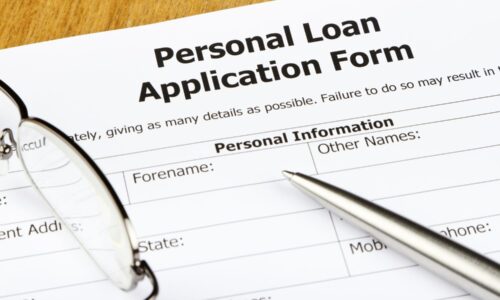Anyone dealing with unpaid bills may experience stress and worry from debt collectors.
The good news is that you can cooperate with debt collectors to settle your outstanding obligations and lessen any stress you may be experiencing. You might be wondering how to get rid of debt collectors if you are currently in debt and they have gotten in touch with you.
This essay will examine what debt collectors actually want and how to cooperate with them to come up with a solution that benefits both of you.
They’re Just Doing Their Jobs

First and foremost, you must realize that debt collectors are not your adversaries. They are merely carrying out their duty to recover the unpaid obligations you owe. If you can pay off a portion of your debt in advance, you may be able to negotiate a settlement with the debt collection company.
Most obligations settle for 30% to 50% of their original value. In exchange for the debt collection company agreeing to list the debt as paid in whole, you agree to pay a lump payment that is less than the total amount owing.
They’re Sometimes Open to Deals
If the debt collection company rejects any settlement offer, you can try to work out a payment arrangement with them. You won’t have to pay a sizable sum of money all at once, and payment plans can prevent you from going to court.
Instead, until the loan is paid off, you will make consistent payments over a predetermined period of time. A payment plan has the advantage of letting you pay off the debt in smaller, more manageable sums, which can be easier on your budget.
It’s critical to remember that a debt collector wants to settle the debt as fast and effectively as possible when bargaining with them. Because they have a job to do, debt collectors want to make sure that their efforts are successful. In spite of this, debt collectors are aware that people sometimes have financial difficulty and may be open to working with you to find a solution that benefits both of you.
Advice For Working with a Debt Collector

First things first, get in touch with the debt collector and request a copy of the debt verification letter. The specifics of the obligation, including the total amount owed and any additional fees or interest, will be described in this letter. As soon as you have this knowledge, you can start negotiating a settlement or payment schedule.
Be Honest
It’s crucial to be truthful and transparent about your financial condition while speaking with a debt collector. Inform them that you’re open to negotiating a payment schedule if you’re unable to settle the debt in full.
Describe your situation and provide a manageable payment schedule. The majority of debt collectors are willing to cooperate with you to come up with a decision that benefits both of you.
Keep Records
Dealing with debt collectors can be a daunting experience. One of the most important things you can do to protect yourself is to keep records of all communications with debt collectors.
By keeping accurate records, you can avoid misunderstandings and ensure that you have evidence of any agreements or arrangements that are made.
Types of Records to Keep
When dealing with debt collectors, it is important to keep records of all communication. This includes any letters, emails, and phone calls. If you speak with a debt collector on the phone, make sure to take notes of the conversation, including the date, time, and what was discussed. If possible, record the conversation for your records.
Copies of Agreements and Payment Schedules
In addition to keeping records of communication, it is important to keep copies of any agreements or payment schedules that are made. If you reach an agreement with a debt collector to pay a certain amount each month, make sure to get the agreement in writing and keep a copy for your records.
This will ensure that you have a record of what was agreed upon and can refer to it if there are any disagreements in the future.
Why Keeping Records is Important

When dealing with debt collectors, it is important to keep accurate records of all communication and agreements. In this section, we will discuss why keeping records is crucial when dealing with debt collectors.
Avoid Misunderstandings
One of the main reasons to keep records is to avoid misunderstandings. By keeping a detailed record of all communication, including letters, emails, and phone calls, you can ensure that both you and the debt collector are on the same page. This can help prevent misunderstandings and ensure that everyone involved has a clear understanding of the situation.
Provide Evidence of Agreements
Keeping records can also help provide evidence of any agreements that are made between you and the debt collector. If you reach an agreement with a debt collector to pay a certain amount each month, it is important to get the agreement in writing and keep a copy for your records. This can help protect you if there is ever a dispute over the terms of the agreement.
In Conclusion
You can cooperate with debt collectors to pay off your outstanding bills. They are not your enemy. The most important thing is to be truthful and transparent about your financial condition while negotiating a settlement or a payment schedule.
Debt collectors may be prepared to work with you to find a solution that benefits both of you since they want to settle the debt as fast and effectively as possible. You can make certain that you have a clear record of what was agreed upon and prevent any conflicts in the future by keeping track of all correspondence and supporting documentation.
Always keep in mind that there is a way to settle debts, and with the correct strategy, you may discover a way to get your finances back on track.




